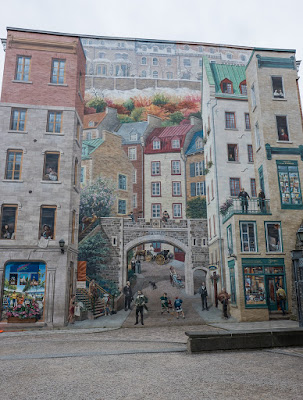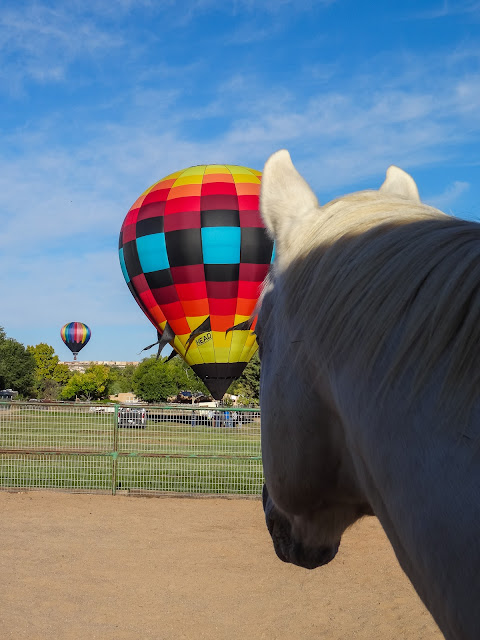On the road to Hangzhou, part one
We had debated the better part of the last two days about how to affect a trip to Hangzhou, a city about 2 hours southwest of Shanghai. Where our host city is large, cosmopolitan and varied, it does not have the tradition of being representative of “real China”, or the one we all remember from the National Geographic magazines of our youth. Shanghai itself is not an ancient city – its growth and prosperity really began in the colonial era. And so there isn’t a lot of old stuff to see.
Hangzhou on the other hand is a historical location. The area has a historical record that extends back almost 50,000 years and modern day Hangzhou began its classical period around 2000 BC. It was the southern terminus of the Grand Canal which was around 600 AD, it being the southern port and Beijing being the end in the north. It was the capital of the Southern Song Dynasty (1127AD) and thus the national capital of the time.
In China, there is a popular folk saying – "In heaven there is Paradise, on earth there are Suzhou and Hangzhou."
The crown jewel of Hangzhou’s allure is Xihu – West Lake, and that was one of our destinations for the day. I also had some interest in the local tea plantations, supposedly the home to some of the finest green teas in the world.
We talked about taking the train, but concluded that it might be more adventure than we needed, considering our limited time. So we mulled the notion of having a van drive us down. Would obviously be more efficient, but perhaps still tough to arrange. Finally we talked to the concierge who just happened to have a great little private tour package that would cost about $125 a head. We figured that while it wasn’t cheap, there was a price to pay for efficiency and the guarantee of hitting our agenda items. And thus we made it so.
Saturday dawned raining cats and dogs, but that was not going to stop us. Promptly at 8:30, our guide Lili showed up with a Mercedes van. We’d added two more adventurers so there was a small debate about fitting everyone in the truck, but we came to the conclusion that Lili could squeeze in the back with 3 of us and the rest could have seats. Off we went.
The drive was rainy, slick and fast. Once out of the Shanghai metro area, we began to pass through interesting areas along the road. Shanghai is located in the extended Yangtze River delta and so is braided with canals of many sizes. I began to see the first real birds on my trip – Terns working the ponds and Cattle Egrets sitting in the trees along the streams. Many fields appeared to be rice, and others held giant Lotus plants, the leaves 3 feet in diameter. Dotting the fields and the edges of the canals were little villages composed of half dozen or so concrete buildings, all with the roof lines we associate with pagodas. The area was completely flat, as you’d expect from an alluvial plain.
 We passed by the occasional factory abandoned building. The day was pretty gray, but the green of the fields broke the gloom. As we closed in on our destination, the homes along the road became more and more impressive, Lili explaining that the farmers in the region were the most successful in the province and so more wealthy. The style became more elaborate too – multiple stories, more glass and more rooftop homes for the ancestors. On top of each home is what we would commonly call a “widow’s walk”, a windowed structure that the wives of whaling captains in New England would climb to in order to catch sight of their husband’s ship returning.
We passed by the occasional factory abandoned building. The day was pretty gray, but the green of the fields broke the gloom. As we closed in on our destination, the homes along the road became more and more impressive, Lili explaining that the farmers in the region were the most successful in the province and so more wealthy. The style became more elaborate too – multiple stories, more glass and more rooftop homes for the ancestors. On top of each home is what we would commonly call a “widow’s walk”, a windowed structure that the wives of whaling captains in New England would climb to in order to catch sight of their husband’s ship returning.  Here, they serve as the final resting place of the ashes of the family ancestors. And topping them are the most incredible lightning rods, comprised of a tripod of rods connecting multiple silver metal spheres. The fancier the house, the more grandiose the lightning system.
Here, they serve as the final resting place of the ashes of the family ancestors. And topping them are the most incredible lightning rods, comprised of a tripod of rods connecting multiple silver metal spheres. The fancier the house, the more grandiose the lightning system.
We cruised on, our trip punctuated by toll booths at which our driver attempted to pay our toll with what must’ve been a counterfeit 100RMB note, given the response of the toll collectors that insisted on throwing it back at him. We finally coughed up a 100 of our own, just to keep the van rolling.
Two or so hours later, we made it into Hangzhou and back into gridlocked traffic. Our driver took a circuitous route around the tie-ups and got us moving once again. It was the first of many indications that out $125 apiece was well spent.
Next stop Xihu.
Hangzhou on the other hand is a historical location. The area has a historical record that extends back almost 50,000 years and modern day Hangzhou began its classical period around 2000 BC. It was the southern terminus of the Grand Canal which was around 600 AD, it being the southern port and Beijing being the end in the north. It was the capital of the Southern Song Dynasty (1127AD) and thus the national capital of the time.
In China, there is a popular folk saying – "In heaven there is Paradise, on earth there are Suzhou and Hangzhou."
The crown jewel of Hangzhou’s allure is Xihu – West Lake, and that was one of our destinations for the day. I also had some interest in the local tea plantations, supposedly the home to some of the finest green teas in the world.
We talked about taking the train, but concluded that it might be more adventure than we needed, considering our limited time. So we mulled the notion of having a van drive us down. Would obviously be more efficient, but perhaps still tough to arrange. Finally we talked to the concierge who just happened to have a great little private tour package that would cost about $125 a head. We figured that while it wasn’t cheap, there was a price to pay for efficiency and the guarantee of hitting our agenda items. And thus we made it so.
Saturday dawned raining cats and dogs, but that was not going to stop us. Promptly at 8:30, our guide Lili showed up with a Mercedes van. We’d added two more adventurers so there was a small debate about fitting everyone in the truck, but we came to the conclusion that Lili could squeeze in the back with 3 of us and the rest could have seats. Off we went.
The drive was rainy, slick and fast. Once out of the Shanghai metro area, we began to pass through interesting areas along the road. Shanghai is located in the extended Yangtze River delta and so is braided with canals of many sizes. I began to see the first real birds on my trip – Terns working the ponds and Cattle Egrets sitting in the trees along the streams. Many fields appeared to be rice, and others held giant Lotus plants, the leaves 3 feet in diameter. Dotting the fields and the edges of the canals were little villages composed of half dozen or so concrete buildings, all with the roof lines we associate with pagodas. The area was completely flat, as you’d expect from an alluvial plain.
 We passed by the occasional factory abandoned building. The day was pretty gray, but the green of the fields broke the gloom. As we closed in on our destination, the homes along the road became more and more impressive, Lili explaining that the farmers in the region were the most successful in the province and so more wealthy. The style became more elaborate too – multiple stories, more glass and more rooftop homes for the ancestors. On top of each home is what we would commonly call a “widow’s walk”, a windowed structure that the wives of whaling captains in New England would climb to in order to catch sight of their husband’s ship returning.
We passed by the occasional factory abandoned building. The day was pretty gray, but the green of the fields broke the gloom. As we closed in on our destination, the homes along the road became more and more impressive, Lili explaining that the farmers in the region were the most successful in the province and so more wealthy. The style became more elaborate too – multiple stories, more glass and more rooftop homes for the ancestors. On top of each home is what we would commonly call a “widow’s walk”, a windowed structure that the wives of whaling captains in New England would climb to in order to catch sight of their husband’s ship returning.  Here, they serve as the final resting place of the ashes of the family ancestors. And topping them are the most incredible lightning rods, comprised of a tripod of rods connecting multiple silver metal spheres. The fancier the house, the more grandiose the lightning system.
Here, they serve as the final resting place of the ashes of the family ancestors. And topping them are the most incredible lightning rods, comprised of a tripod of rods connecting multiple silver metal spheres. The fancier the house, the more grandiose the lightning system.We cruised on, our trip punctuated by toll booths at which our driver attempted to pay our toll with what must’ve been a counterfeit 100RMB note, given the response of the toll collectors that insisted on throwing it back at him. We finally coughed up a 100 of our own, just to keep the van rolling.
Two or so hours later, we made it into Hangzhou and back into gridlocked traffic. Our driver took a circuitous route around the tie-ups and got us moving once again. It was the first of many indications that out $125 apiece was well spent.
Next stop Xihu.




Comments